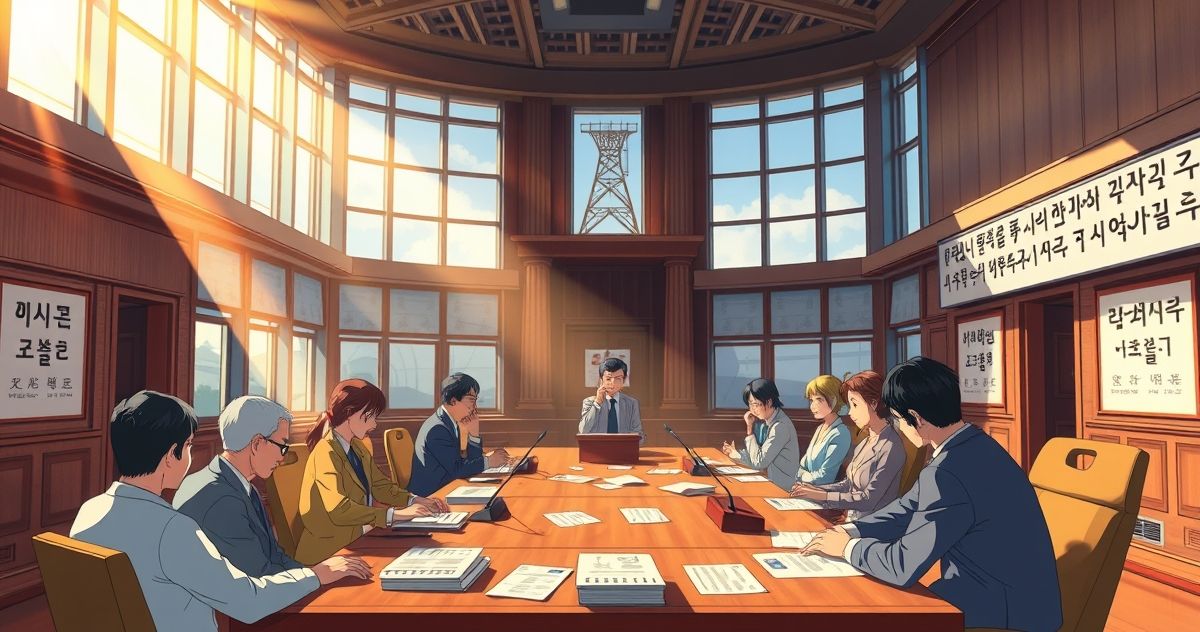
A significant shift in South Korea's media landscape emerged on July 7, as the National Assembly's Science, Technology, Information, Broadcasting and Communications Committee passed the controversial "Broadcasting Three Acts" under the leadership of the ruling Democratic Party. This comprehensive legislation aims to restructure the governance framework of major public broadcasters including KBS, MBC, and EBS, marking a potential turning point in Korean broadcasting history.
Key Reforms and Structural Changes
The newly passed legislation introduces sweeping changes to ensure greater independence and fairness in public broadcasting operations. The most notable reform involves expanding the board of directors from nine to fifteen members for KBS, alongside mandating the establishment of presidential recommendation committees. This expansion aims to diversify decision-making processes and reduce concentrated power structures that have historically influenced broadcasting content.
The legislation also institutionalizes internal recommendation committees and mandates the creation of programming committees. These measures are designed to protect editorial independence and shield content creation from external political pressures. Particularly significant is the introduction of a consent system for appointing news directors, which represents a crucial mechanism for ensuring journalistic neutrality.
The reforms extend beyond traditional public broadcasters to include YTN and Yonhap News TV, expanding the scope of media organizations subject to these new governance standards. This comprehensive approach reflects the government's intention to create uniform standards across the public broadcasting sector.
Political Reactions and Controversy
The ruling Democratic Party has framed these reforms as essential steps toward genuine media independence. Party officials argue that these changes will finally free public broadcasters from political manipulation that has plagued Korean media for decades. "This legislation provides an opportunity for public broadcasting to recover its true public mission after years of being swayed by political winds," stated a Democratic Party spokesperson.
Opposition parties, however, have mounted fierce resistance to the proposals. The People Power Party has characterized the legislation as an attempt to transform public broadcasters into government propaganda outlets. Conservative lawmakers argue that rather than enhancing independence, these measures could create new channels for political influence and control.
The controversy extends to concerns about "media division," with critics arguing that selectively applying these standards to certain outlets while excluding others like SBS and regional private broadcasters creates an uneven playing field in the media landscape.
Industry Perspectives and Implementation Challenges
Within the broadcasting industry, reactions remain mixed. Some veteran journalists and producers welcome the potential for reduced political interference in newsroom operations. They express hope that the new governance structures will provide stability and protect editorial decisions from changing political tides.
However, significant concerns persist about the practical implementation of these reforms. Industry insiders question whether the new structures might simply create different pathways for political influence rather than eliminating them entirely. The absence of adequate regional representation in the governance framework has also drawn criticism from local broadcasting advocates.
International Context and Media Freedom
These reforms come at a time when media independence faces challenges globally. South Korea's approach to public broadcasting governance will be closely watched by media freedom advocates and international observers. The success or failure of these measures could influence similar debates in other democratic societies struggling to balance media independence with public accountability.
The legislation also reflects broader democratic tensions in South Korea, where debates over media bias and political influence have intensified in recent years. These reforms represent an attempt to address longstanding concerns about the relationship between political power and media control.
Looking Ahead
As the legislation moves toward a full National Assembly vote, the political battle is expected to intensify. While the ruling party's majority makes passage likely, the opposition's strong resistance suggests continued controversy and potential legal challenges.
The ultimate test of these reforms will be their actual impact on broadcasting independence and quality. Institutional changes alone cannot guarantee media freedom; they must be accompanied by professional ethics, journalistic integrity, and sustained public vigilance.
Whether these reforms will successfully transform South Korea's public broadcasting into truly independent institutions serving the public interest remains to be seen. The "Broadcasting Three Acts" represent either a watershed moment for media freedom or another chapter in the ongoing struggle between political power and press independence.
Original: https://trendy.storydot.kr/politics/broadcasting-reform-committee-passage-2025


0 Comments